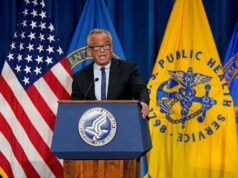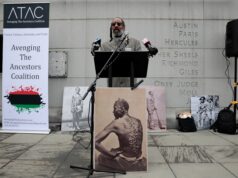
The slain conservative activist Charlie Kirk was “a modern-day St. Paul,” New York Cardinal Timothy M. Dolan said in a Sept. 19 appearance on “Fox & Friends.”
“He was a missionary, he’s an evangelist, he’s a hero,” he said. “He’s one, I think, who knew what Jesus meant when he said, ‘The truth will set you free.'”
Cardinal Dolan acknowledged that he was not familiar with Kirk and his movement before learning the “tragic news” of the fatal shooting of the 31-year-old founder of Turning Point USA Sept. 10 during an event at Utah Valley University in Orem, followed by an “overwhelming sense of sorrow and kind of renewal.”
“I thought, ‘I’ve got to learn about this guy,’ and the more I learned about him, I thought, ‘this guy’s a modern-day St. Paul,'” Cardinal Dolan said.

“Now I understand he was pretty blunt and he was pretty direct. He didn’t try to avoid any controversy, he didn’t even try to avoid confrontation,” he said. “The difference is the way, the mode, the style that he did it — always with respect (for his opponents) and not only was that a gracious, kind of virtuous thing to do, it’s effective. … I thought this guy can teach us something.”
Kirk “wasn’t afraid to talk about the Lord. He wasn’t even afraid to say the name of Jesus,” Cardinal Dolan said, adding, “I heard Billy Graham once say, ‘I will never publicly speak without saying the name of Jesus because that name has power and it echoes through the universe.’ And apparently, that’s what Charlie did.”
He said he had spent the previous evening with about 200 students at the New York University Catholic Center and “this is what they talked about.”
He said he is seeing a return to religion among young people, who, he thinks, are feeling there’s “something missing … a void,” despite their jobs and success.
There’s a “kind of a revival” of “a sense of value and truth and conviction” among young people, he said, “almost an elevation of the role of faith back into the public square where our founders intended it to be from the beginning.”
“This overwhelming sense of appreciation for Charlie and the great solidarity that we’re sensing is itself an answer to prayers and is itself a sign of the Resurrection,” he said.
“I would reckon,” the cardinal added, “that some people are saying, ‘Well, you’re saying too many nice things about him (Kirk).’ I don’t know him that well, but I am sure if he was a convinced disciple of Jesus Christ, he knew his sins. Jesus knew them.”
Asked his reaction to people who are celebrating Kirk’s murder, Cardinal Dolan said this is “a consequence of what Charlie often spoke about — the complete decline in objective good and evil. … What the assassin did was objectively evil, and we can’t shy away from that.”
He praised Kirk’s debate style — respecting those who disagreed with him and those he disagreed with. The focus of healthy debate, the cardinal said, must be “issues not individuals, principles not just politics, principles not people. The weakest of all arguments, you know, is ad hominem, when you begin to attack the person.”
His remarks echoed a Sept. 17 op-ed he wrote for the New York Post headlined: “In wake of Charlie Kirk killing, we must stop this hatred and acrimony.”
“I’m old enough to remember when it was possible to speak respectfully with those with whom we disagreed,” Cardinal Dolan wrote.
“Isn’t our overheated rhetoric, our automatic, knee-jerk reaction to, at a minimum, verbally attack anyone who has a different opinion, another point of view, at least partially, if not largely to blame?” he asked, for driving the kind of violence taking place in the country right now, like that which took Kirk’s life.
The previous week was “emotionally difficult for so many of us,” he said, with the “somber” anniversary of 9/11 and Kirk’s killing the day before, “another act of senseless violence” that “left a young wife and two small children without a husband and a father.”

“We recoiled at the images of this young man being fatally struck by a bullet from a high-powered rifle,” the cardinal said. “Sadly, these attacks seem to be happening more frequently. The two assassination attempts on President (Donald) Trump as he campaigned for office last summer, the murder of United Healthcare CEO Brian Thompson, the attempted murders of Steve Scalise and Gabby Giffords, and, let’s not forget, the terrible school shootings in Minnesota, Colorado, and elsewhere. The list goes on.”
Among factors “driving this bitter hatred, this paroxysm of outrage and retribution” and contributing “to this climate of hatred and acrimony,” he said, “is the online echo chamber that many people now inhabit. … A great many, I fear, are consuming videos and posts that reinforce and deepen the idea that ‘the other guy’ is evil, a threat, something that must be destroyed.”
Most people “don’t respond with physical violence,” he said, “even those who consume such media,” but the question must be asked, “Does it engender violence in our hearts, minds, and souls?”
“What’s the solution? Is there a solution?” he asked. “‘Blessed are the peacemakers,’ Jesus tells us in the Sermon on the Mount, ‘for they will be called children of God.’ How do we make peace?”
Julie Asher is OSV News senior editor.












